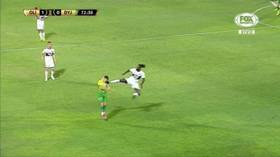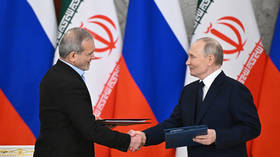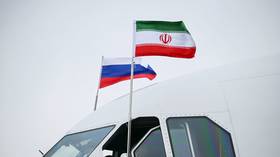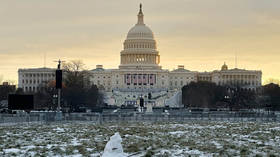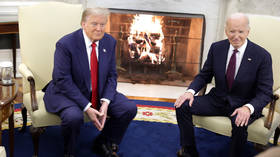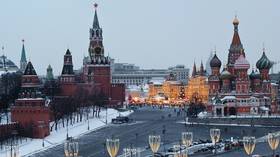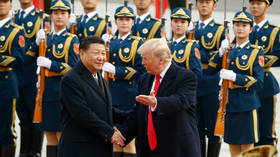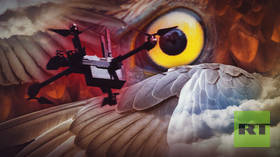Coughing but winning: Russia’s ‘unwell’ Nepo destroys Chinese rivals & surges into World Chess Candidates lead
Ian Nepomniachtchi has beaten two Chinese rivals to forge ahead at the World Chess Candidates in Ekaterinburg, despite suffering from a persistent cough. The event may be called off if the Russian tests positive for Covid-19.
The 29-year-old Nepomniachtchi (known as ‘Nepo’ by fans) played his moves in double-quick time to beat China’s Ding Liren in dramatic fashion in round 6 of the Candidates Tournament, opening up a full 1-point lead at 4.5/6 over his nearest rival, Maxime Vachier-Lagrave of France. If Nepo can retain his lead and win the event, he will challenge Norwegian world champion Magnus Carlsen for his title in December in Dubai.
Yet worries surfaced that Nepo, a renowned speed specialist who is one of only a few players in the world to enjoy a plus score against Carlsen, may have contracted coronavirus after he coughed incessantly through a post-game press conference.
Despite not feeling well, @lachesisq played a near-perfect game to defeat Ding Liren and move to +3.Ding did miss one spectacular resource to save the game: 33...Rxb6!! 34.Rxb6 Qxe2 35.Rb8 Re5!! pic.twitter.com/N1xd9TQoJF
— Chess.com (@chesscom) March 23, 2020
New World Chess Federation (FIDE) health rules, brought in specially for the 8-player Candidates Tournament in Ekaterinburg, stipulate that if any player tests positive for coronavirus, the entire event will have to be postponed for several months – with players resuming with their scores when the tournament was halted.
Nepo’s health scare came despite showing some of the best form of his life in the first six games of the 14-round, double round robin tournament. He has defeated both Chinese challengers (Ding Liren and Wang Hao), along with the Netherlands’ Anish Giri in Round 1, and drawn with American top seed Fabiano Caruana, and his Russian compatriots, Aleksandr Grischuk and Kirill Alekseenko.
Nepo’s win over Ding, the number 2 seed tipped before the tournament as a potential challenger to Carlsen, came after the Russian grabbed a clear advantage with a passed pawn that threatened to become a queen, and then survived a dangerous counter-attack that put his own king in jeopardy. At one point, the out-of-form Ding missed a brilliant combination that would have either forced a draw by perpetual check, or even checkmated Nepo sensationally if the Russian had pressed for the win.
Nepo: "I'm definitely feeling not OK and actually I wanted to make like some kind of a quick draw today. (...) I got a couple of these tests and both [were] negative. But again, you know, the whole atmosphere, it doesn't help you to feel healthy."#FIDECandidates 📷 @FIDE_chesspic.twitter.com/0eCECM0zRq
— ChesscomNews (@ChesscomNews) March 23, 2020
Asked after the game for his reaction to the computer-like brilliancy Ding missed, Nepo quipped to a press conference: “If you see Rook to e5, you should be disqualified.”
Nepo’s light-hearted ‘cheating’ comment referenced persistent fears in top-class chess that out-of-this-world moves found by leading grandmasters may not be the result of brilliant human thought, but computer-aided analysis.
World Candidates Tournaments and World Chess Championship matches have been dogged in the past by allegations of cheating, such as when Bulgarian challenger Veselin Topalov and Russian champion Vladimir Kramnik were embroiled in a scandal that became known as ‘Toiletgate’.
Nothing was proven on that occasion, but fears abound at elite events that players may be receiving assistance from so-called chess ‘engines’, super-computers that can analyze up to 20-30 moves ahead with a level of accuracy unheard of in human players.
Also on rt.com Twice-daily health checks and no spectators allowed: World Chess Candidates grabs online audience as sports hit by coronavirusNepo’s victory over Wang Hao in Round 5 is being hailed by grandmaster commentators as a modern-day brilliancy, with his use of an innovative technique (pushing a ‘thorn pawn’ on the edge of the board into the heart of an opponent’s king position) developed in the last two years by Google DeepMind’s AI program Alpha Zero.
The ‘thorn pawn’ ploy has primarily been used in complex middlegame positions, but Nepomniachtchi’s expert handling of the position arising from a Petroff Defense showed it could be used to pressure an opponent – not just to threaten checkmate but also queen the advanced pawn, even with just a few pieces left on the board.
In a dramatic breakthrough, Nepo distracted his Chinese opponent with a pawn sacrifice on the queenside, and the far advanced kingside pawn prompted Wang’s king to abandon its fortress position. The Chinese grandmaster was then caught adrift mid-board with a brilliantly executed combination that won material and left Nepo with an easy endgame win.
Chasing Nepomniachtchi (4.5/6) and Vachier-Lagrave (3.5) are Caruana, Giri, Wang and Grischuk (3). Out of contention at this stage are Ding and Alekseenko (2).
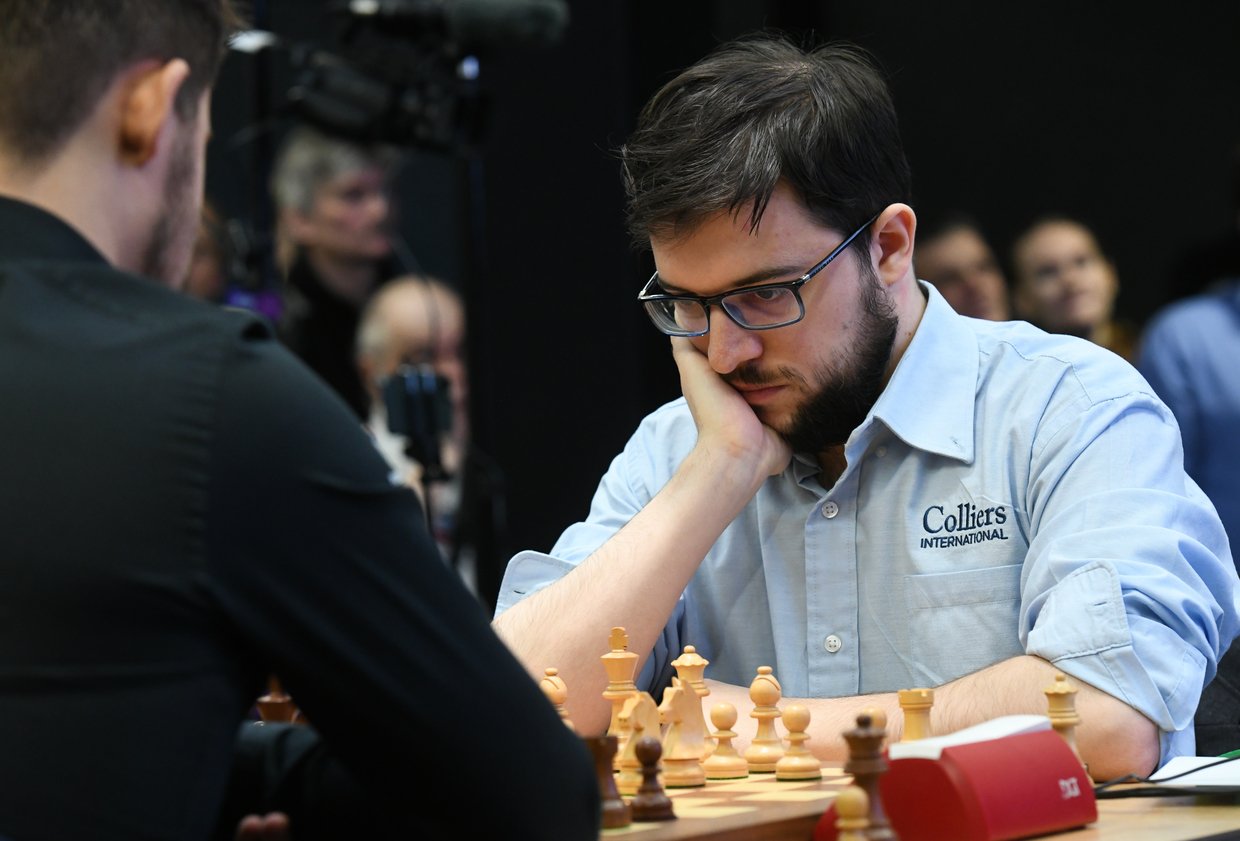
So great are the fears over coronavirus and its related psychological effects that some of the players have called for the tournament to be halted. Fabiano Caruana, Aleksandr Grischuk, and Wang Hao all have expressed concerns about the health risks connected with continuing the event, saying that the worrying atmosphere surrounding the tournament is distracting the players. Caruana and Wang have said they fear they will not be allowed to return to their home countries after the tournament finishes, due to coronavirus travel restrictions.
Despite the Covid-19 pandemic fears, the Candidates Tournament is attracting large audiences of chess fans online, with hundreds of thousands of players worldwide tuning in to live broadcasts with expert commentary by world champion Magnus Carlsen and other leading grandmasters.
The tournament is scheduled to continue until April 3, coronavirus permitting, when the challenger to Carlsen will be announced. If he qualifies, Nepomniachtchi will hope to be the first Russian to win the world championship since Kramnik lost his title to India’s Viswanathan Anand in 2007.



